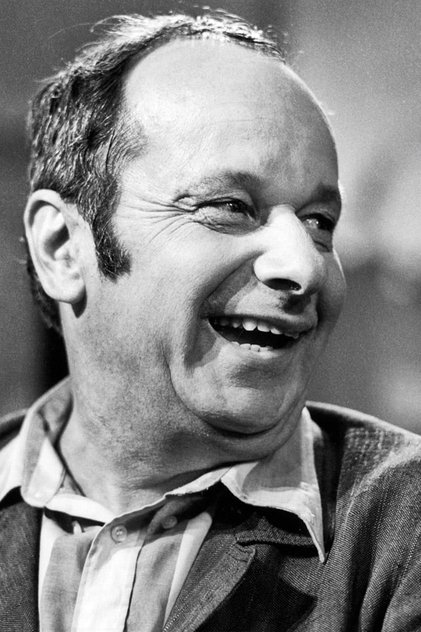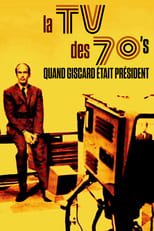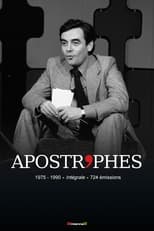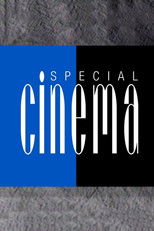

Jean-Louis Bory
Born: June 25, 1919
Died: June 11, 1979
in Méréville, Essonne, France
Died: June 11, 1979
in Méréville, Essonne, France
Jean-Louis Bory (25 June 1919 – 11/12 June 1979) was a French writer, journalist, and film critic.
Jean-Louis Bory was born on 25 June 1919 in Méréville, Essonne.
The son of a pharmacist and a teacher, he came from a family of teachers. With an atheist father and a non-practicing mother, religion played a minor role in his development. It was rather the Popular Front that formed his character. A brilliant student at Étampes, he entered the Lycée Henri-IV.
Just when he was ready to enter the École Normale Supérieure in 1939, he was called up for military service. Returning to the Latin Quarter in October 1942, he passed his agrégation des lettres examinations in July 1945. Two months later, Flammarion published his first novel, Mon village à l'heure allemande, which won the Prix Goncourt with the support of Colette. Its sales of 500,000 copies represented an exceptional success, even as he was assigned a position in Haguenau in the province of Bas-Rhin. The money enabled him to buy from the Countess Cally, his aunt, the property his grandparents has acquired in 1880 in Méréville. It was known as "Villa des Iris", and he renamed it "La Calife" or "The Caliph". His second book (Dear Agle, 1947) proved less successful. In 1948 he was assigned to the Paris region and was able to collaborate at the La Gazette des Lettres with Robert Kanters, Paul Guth and François Mauriac.
Politically, he was of that generation disappointed that there was no development from "resistance movement to revolution." He was even solicited by Aragon to join the CPF. But he preferred to limit his membership to quasi-communist groups like the pacifist Mouvement de la Paix, the National Writers Association, and the France-USSR Association. Appointed to the Lycée Voltaire in 1950, he made his debut as a journalism in 1952 in Samedi Soir. But in 1955, he chose to follow his friend Francis Erval to L'Express, which was the mouthpiece of Pierre Mendès France, to whose politics he was increasingly attracted.
Moreover, in 1956, he broke with the Communists on Soviet intervention in Hungary against which he signed a petition with Edgar Morin, Gilles Martinet, Jean-Marie Domenach, and Georges Suffert. He also resigned from the Honorary Committee of the Association France-USSR. This did not prevent him from promoting its third-world anti-colonialist positions. Thus, in 1960, when his editor Rene Julliard proposed he sign the Manifesto of the 121, he did not hesitate and found himself suspended from the professorship he had held at the Lycée Henri-IV since 1957. He was reinstated after a few months, but this event marked a rupture in his relationship with the teaching profession for which he had always had the utmost respect. His students gave him a great deal of satisfaction, and it was not uncommon to hear the cry of joy "Mom, I've got Bory", as Michel Cournot remembered according to an article published after Bory's death in the Nouvel Observateur. ...
Source: Article "Jean-Louis Bory" from Wikipedia in English, licensed under CC-BY-SA 3.0.
Jean-Louis Bory was born on 25 June 1919 in Méréville, Essonne.
The son of a pharmacist and a teacher, he came from a family of teachers. With an atheist father and a non-practicing mother, religion played a minor role in his development. It was rather the Popular Front that formed his character. A brilliant student at Étampes, he entered the Lycée Henri-IV.
Just when he was ready to enter the École Normale Supérieure in 1939, he was called up for military service. Returning to the Latin Quarter in October 1942, he passed his agrégation des lettres examinations in July 1945. Two months later, Flammarion published his first novel, Mon village à l'heure allemande, which won the Prix Goncourt with the support of Colette. Its sales of 500,000 copies represented an exceptional success, even as he was assigned a position in Haguenau in the province of Bas-Rhin. The money enabled him to buy from the Countess Cally, his aunt, the property his grandparents has acquired in 1880 in Méréville. It was known as "Villa des Iris", and he renamed it "La Calife" or "The Caliph". His second book (Dear Agle, 1947) proved less successful. In 1948 he was assigned to the Paris region and was able to collaborate at the La Gazette des Lettres with Robert Kanters, Paul Guth and François Mauriac.
Politically, he was of that generation disappointed that there was no development from "resistance movement to revolution." He was even solicited by Aragon to join the CPF. But he preferred to limit his membership to quasi-communist groups like the pacifist Mouvement de la Paix, the National Writers Association, and the France-USSR Association. Appointed to the Lycée Voltaire in 1950, he made his debut as a journalism in 1952 in Samedi Soir. But in 1955, he chose to follow his friend Francis Erval to L'Express, which was the mouthpiece of Pierre Mendès France, to whose politics he was increasingly attracted.
Moreover, in 1956, he broke with the Communists on Soviet intervention in Hungary against which he signed a petition with Edgar Morin, Gilles Martinet, Jean-Marie Domenach, and Georges Suffert. He also resigned from the Honorary Committee of the Association France-USSR. This did not prevent him from promoting its third-world anti-colonialist positions. Thus, in 1960, when his editor Rene Julliard proposed he sign the Manifesto of the 121, he did not hesitate and found himself suspended from the professorship he had held at the Lycée Henri-IV since 1957. He was reinstated after a few months, but this event marked a rupture in his relationship with the teaching profession for which he had always had the utmost respect. His students gave him a great deal of satisfaction, and it was not uncommon to hear the cry of joy "Mom, I've got Bory", as Michel Cournot remembered according to an article published after Bory's death in the Nouvel Observateur. ...
Source: Article "Jean-Louis Bory" from Wikipedia in English, licensed under CC-BY-SA 3.0.
Movies for Jean-Louis Bory...

Title: La TV des 70's : Quand Giscard était président
Character: Self (archive footage)
Released: January 7, 2022
Type: Movie
In May 1974, Valéry Giscard d'Estaing became President of the Republic and wanted to bring about a new era of modernity. One of his first decisions was to break up the ORTF with the creation of three new television channels: TF1, Antenne 2 and FR3. Three new public channels but autonomous and competing. It is a race for the audience which is engaged then, and from now on the channels will make the war! This competition will give birth to a real golden age for television programs, with variety shows in the forefront. The stars of the song are going to invade the living rooms of the French for their biggest pleasure. This unedited documentary tells the story of the metamorphosis of this television of the early 1970s, between freedom of tone, scandals, political intrigues and programs that have become mythical.


Title: Apostrophes
Character: Self
Released: January 10, 1975
Type: TV
Apostrophes was a live, weekly, literary, prime-time, talk show on French television created and hosted by Bernard Pivot. It ran for fifteen years (724 episodes) from January 10, 1975, to June 22, 1990, and was one of the most watched shows on French television (around 6 million regular viewers). It was broadcast on Friday nights on the channel France 2 (which was called "Antenne 2" from 1975 to 1992). The hourlong show was devoted to books, authors and literature. The format varied between one-on-one interviews with a single author and open discussions between four or five authors.


Title: Midi Première
Character: Self
Released: January 6, 1975
Type: TV
Midi Première is a French variety show presented by Danièle Gilbert, directed by Jacques Pierre and broadcast from January 6, 1975 until January 1, 1982 on TF1. The program was generally broadcast between 12:15 p.m. and 12:55 p.m., then giving way to the 1:00 p.m. TV news. However, the broadcast schedule could change, depending on the guests, and the setting where the recording of the program was shot. Certain performances by artists who have become cult like the one where Ringo jostles with a demonstrator in interpretation (1977), that of Dalida with the title There is always a song with the soundtrack that does not start, twice, at the right speed (1978), Claude François and his Clodettes, who, in the provinces, are unable to join "the set" in order to interpret his song, the latter being taken by the crowd of delirious fans (summer 1977) . The group Supertramp performed there with the title "Dreamer" on March 8, 1975.


Title: Spécial cinéma
Character: Self (archive footage)
Released: September 25, 1974
Type: TV








Title: Horizon
Character: The cop (uncredited)
Released: April 12, 1967
Type: Movie
Antonin is a young French soldier who returns home from World War I to recover from his wounds. When he falls in love with a young widow, Antonin questions his role in battle and contemplates desertion as he recalls the horrors of war. He is pressured by his patriotic father to honor his military commitment even if it means he will die.
